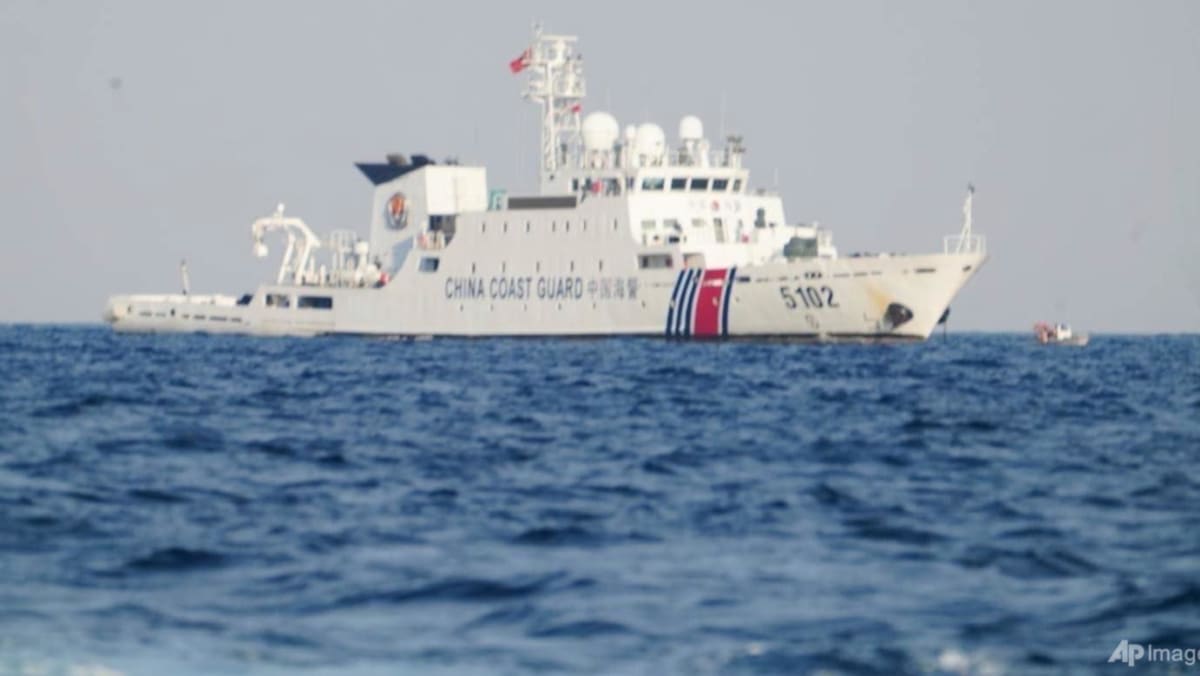China's South China Sea Patrols: Philippines Claims 'Disturbances'
The South China Sea continues to be a flashpoint of geopolitical tension, with recent reports highlighting increased Chinese patrols and the Philippines expressing concerns over what it calls "disturbances" in its exclusive economic zone (EEZ). This escalating situation demands a closer look at the ongoing maritime disputes and their potential implications for regional stability.
Increased Chinese Presence Fuels Tensions
The Philippines has lodged several diplomatic protests against China in recent months, citing incidents involving Chinese coast guard and maritime militia vessels operating within its claimed EEZ. These actions, according to Manila, represent a violation of its sovereign rights and are disrupting fishing activities of Filipino fishermen. The alleged disturbances range from close encounters and harassment to outright obstruction of Filipino vessels.
- Aggressive Tactics Alleged: The Philippine government has accused Chinese vessels of employing aggressive tactics, including the use of water cannons and dangerous maneuvers, to intimidate Filipino fishing boats and assert China's expansive claims in the region.
- Diplomatic Protests: Manila has consistently utilized diplomatic channels to address these concerns, but the frequency of these protests suggests a lack of meaningful de-escalation from Beijing.
- Impact on Filipino Fishermen: The alleged harassment significantly impacts the livelihoods of Filipino fishermen who rely on the rich fishing grounds in the disputed waters. This economic impact adds a crucial layer to the geopolitical conflict.
China's Perspective: A Contested Narrative
China, for its part, maintains its claim to almost the entirety of the South China Sea, based on its historical interpretation of the "nine-dash line." Beijing argues that its presence in the region is justified and that its activities are within its rights. China often frames its actions as necessary for maintaining order and protecting its interests. However, these claims are not universally recognized under international law, particularly the United Nations Convention on the Law of the Sea (UNCLOS).
International Implications and the Role of UNCLOS
The ongoing disputes in the South China Sea have significant international implications. The UNCLOS, which China is a signatory to, provides a framework for resolving such disputes peacefully and fairly. However, China's disregard for certain aspects of UNCLOS, particularly regarding its expansive claims, fuels concerns about the rule of law in the region. The international community, including the United States and other regional powers, has expressed concern over China's actions and urged a peaceful resolution through dialogue and adherence to international law.
The Path Forward: Diplomacy and Regional Cooperation
Addressing the tensions in the South China Sea requires a multi-faceted approach prioritizing diplomatic solutions. Open communication and adherence to international law are crucial for de-escalation. Furthermore, strengthened regional cooperation among ASEAN member states is vital in presenting a unified front and advocating for a rules-based order in the region. Failure to address these concerns effectively risks further escalation and could destabilize the entire region.
Conclusion:
The increased Chinese patrols and the Philippines' claims of "disturbances" highlight the persistent challenges in the South China Sea. The situation underscores the urgent need for diplomatic engagement, respect for international law, and regional cooperation to ensure peace and stability in this vital maritime area. The continued monitoring of this situation and the responses from both nations are crucial for understanding the future trajectory of this critical geopolitical issue. Further developments warrant close observation.

